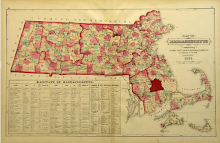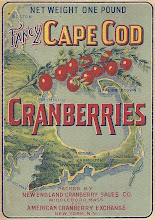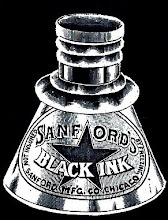 Once the most popular chicken in America, the Plymouth Rock is now considered an heirloom breed. The Plymouth Rock was first developed following the Civil War by D. A. Upham of Worcester, Massachusetts, and other farmers who sought to develop a cold-hardy dual-purpose fowl that had a large, deep-set body, which permitted them to produce a substantial number of eggs annually (up to 200), as well as providing a meaty bird. The original Plymouth Rocks had a unique white and black striped or barred pattern and consequently came to be known as Plymouth Barred Rocks.
Once the most popular chicken in America, the Plymouth Rock is now considered an heirloom breed. The Plymouth Rock was first developed following the Civil War by D. A. Upham of Worcester, Massachusetts, and other farmers who sought to develop a cold-hardy dual-purpose fowl that had a large, deep-set body, which permitted them to produce a substantial number of eggs annually (up to 200), as well as providing a meaty bird. The original Plymouth Rocks had a unique white and black striped or barred pattern and consequently came to be known as Plymouth Barred Rocks..
Locally, Plymouth Rocks were highly favored. In 1882, Solomon H. Sylvester of Middleborough praised the relatively new breed, and such enthusiasm upon the part of Middleborough and Lakeville farmers encouraged the bird's popularity.
.
 Mr. S. H. Sylvester, a fowl fancier, of Middleboro, of much experience, says that for the most good qualities and the fewest poor ones, the "Plymouth Rock" fowl excel all others, as they are good layers and setters, easy keepers, hardy, plump and nice for the table. The Poultry World backs up this statement, so now our readers will know what kind of hens to keep.
Mr. S. H. Sylvester, a fowl fancier, of Middleboro, of much experience, says that for the most good qualities and the fewest poor ones, the "Plymouth Rock" fowl excel all others, as they are good layers and setters, easy keepers, hardy, plump and nice for the table. The Poultry World backs up this statement, so now our readers will know what kind of hens to keep.Later, other varieties of Plymouth Rocks were developed, including the brilliantly white White Plymouth Rock and the Buff Plymouth Rock (developed from cross-breeding Plymouth Rocks with Orpingtons and Rhode Island Reds). So popular did the Plymouth Rock breed become, that it warranted its own magazine, Plymouth Rock Monthly which was devoted entirely to the bird. Ironically, though the Plymouth Rock was once the most commonly kept chicken in America, its popularity plummeted in the 20th century, so much so that it was believed by some to have been on the verge of extinction. Today, however, the Plymouth Rock Fanciers Club of America and other organizations help foster this heirloom breed.
Fortunately Plymouth Rocks, including the original Plymouth Barred Rock, are still kept locally and their light pink-brown eggs sold. The following video courtesy of the Dahlia Farm on Plymouth Street in Middleborough depicts a brood of Plymouth Rocks intrepidly encountering its first snow.
Illustrations:
Plymouth Rock Monthly, February, 1925, cover.
A. C. Smith, The Plymouth Rock Standard and Breed Book (The American Poultry Association, 1915 rev. ed.), cover.
"Chickens First Snow", courtesy The Dahlia Farm.com
Sources:
Old Colony Memorial, "County and Elsewhere", February 8, 1882, p. 5.






















+of+Smoky+Mountains+018.jpg)
1 comments:
Thanks for the link... These girls are entirely Plymouth Rock Barred (black & white), Plymouth Rock White, and New Hampshire Reds.
Post a Comment